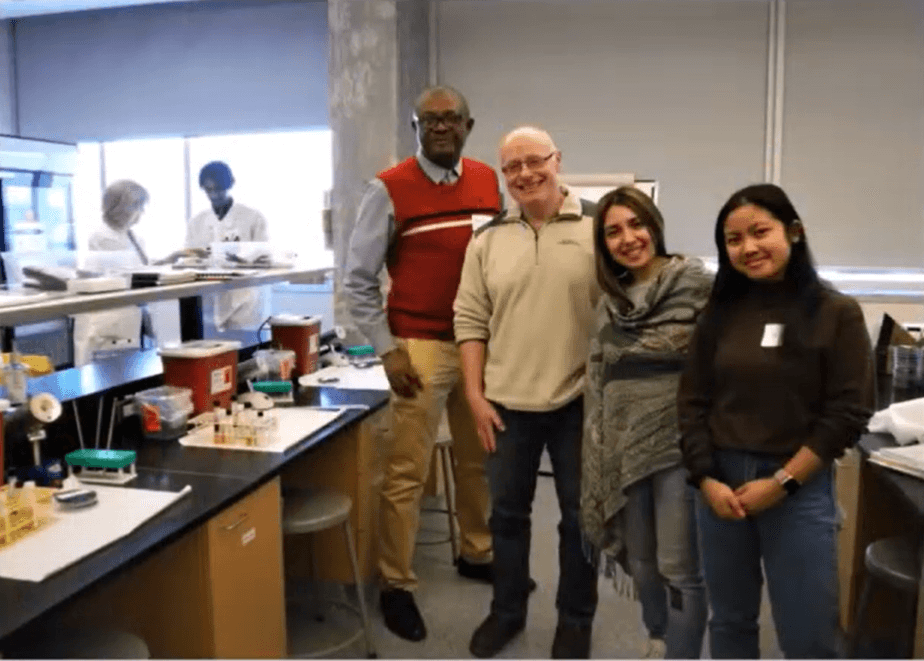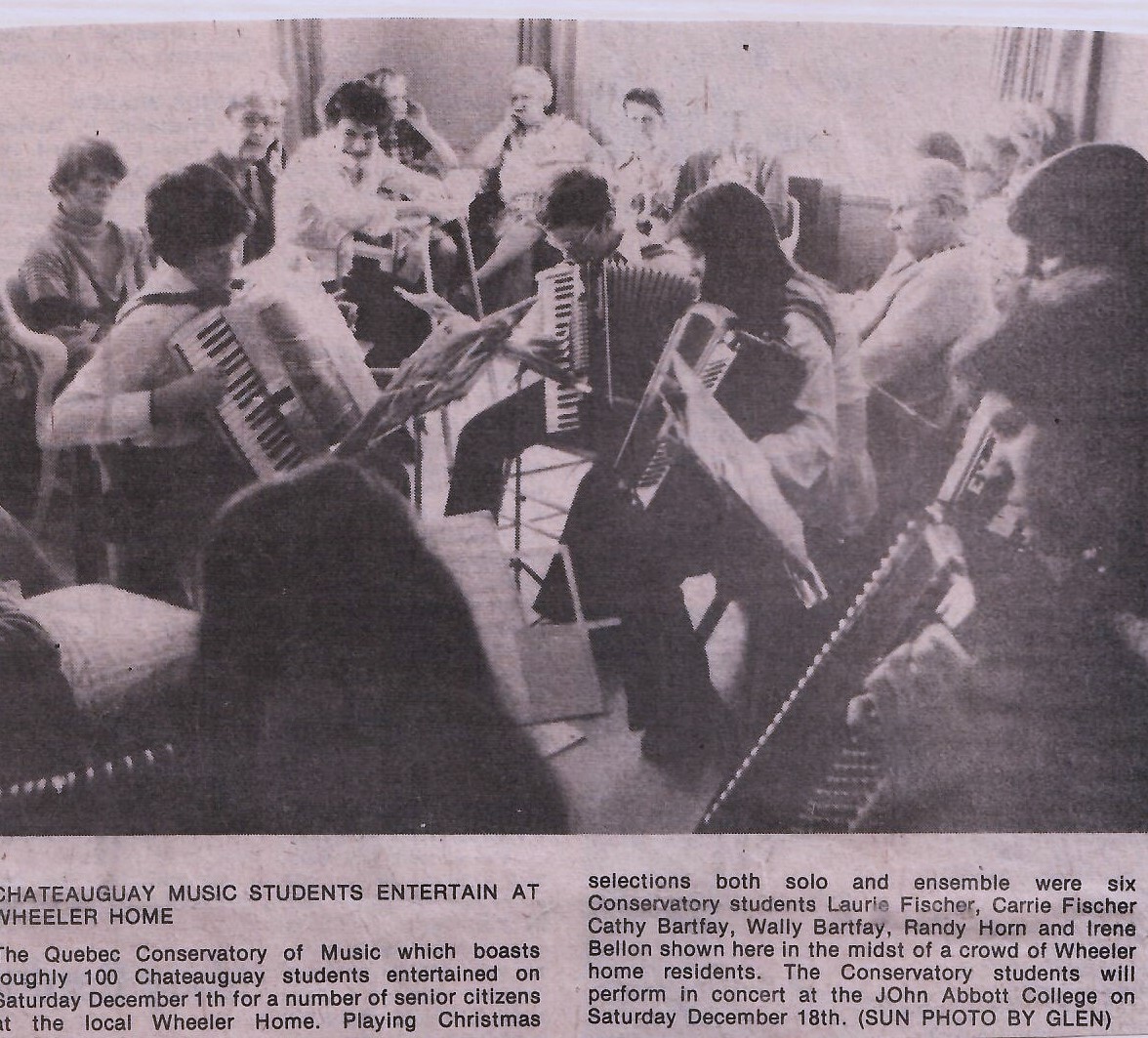We’re excited to introduce you to the always interesting and insightful Wally Bartfay. We hope you’ll enjoy our conversation with Wally below.
Wally, thanks for taking the time to share your stories with us today Is there a heartwarming story from your career that you look back on?
logoBold Journey Magazine
Sitemap
Nominations
About Bold Journey
Bold Journey Podcast
Privacy & Terms of Service
Categories
Leadership Development
Mental Health
Relationships
Productivity
Resilience
Confidence
Technology
Search Bold Journey
Search
Meet Wally Bartfay
October 10, 2024
We were lucky to catch up with Wally Bartfay recently and have shared our conversation below.
My parents have always been an inspiration for me for hard work and making sacrifices in life, who immigrated to Canada in 1957 following the Hungarian Revolution with the cloths on their backs only. After a several week voyage on ship, they landed on the shores of Canada and were given $5.00 Canadian each and a train ticket to begin life in a foreign country. They did not speak English at the time, but started to work the next day upon arrival on a farm in Fruitland, Ontario. They worked long hours everyday and quickly learned to speak and write English watching kid programs on television. They saved-up what little money they earned. They subsequently moved to Montreal where my 2 uncles who also immigrated from Hungary were living. My mother worked in a garment factory long hours and my father worked for the Canadian National (CN) railway doing construction and shoveling snow also in the winter time to earn extra money. My father also attended university at night to earn a degree at McGill University. My mother managed to get a job doing portrait photography at a studio and developing film. They saved-up and managed to put down enough for a small bungalow in Chateauguay, Quebec.
I can’t remember a time I wasn’t doing odd jobs to save-up money as well from mowing lawns, shoveling snow in the winter, painting fences, and working in my uncles garage pumping gas, fixing tires and going oil changes on weekends. If you want something in life, it requires dedication and sacrifice. I got my first second hand 6 string guitar from a pawn shop for around $50 Canadian. There was no Internet at this time, so I took out books from the local library to learn how to tune and play cords on my own. I practiced literally until my fingers bled. Music continues to play a major role in my life now and I believe it has many therapeutic properties that we are only now starting to unlock, which I shall describe in greater detail in a moment.
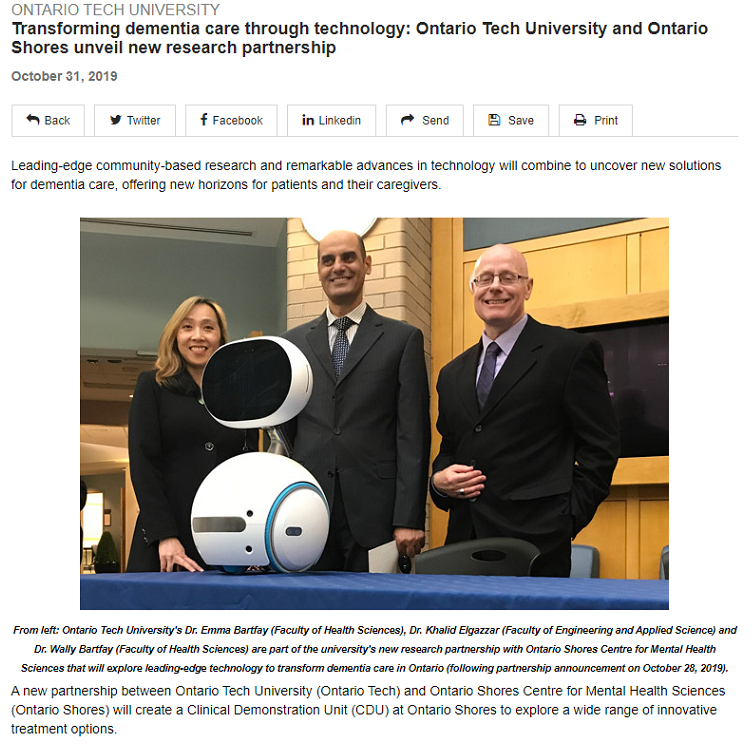
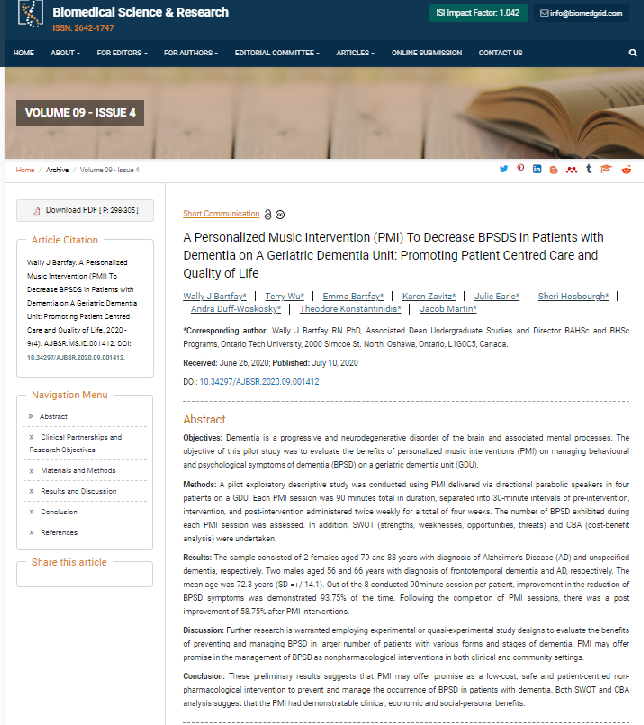
Great, appreciate you sharing that with us. Before we ask you to share more of your insights, can you take a moment to introduce yourself and how you got to where you are today to our readers.
When I was a teenager, I took several lifeguarding courses and did this over several summers to pay for my college and university education. I didn’t want my parents to pay for this and managed to survive the payments for tuition and books while working and studying and also scholarships that I managed to get. I became a health care professional and then decided to pursued graduate studies. My first teaching position was at Red River Community College in Winnipeg, Manitoba where I taught nursing students and really enjoyed this experience and found teaching very rewarding indeed. I subsequently decided to pursue a doctorate and get into academia and research.
While doing my PhD at the Institute of Medical Sciences at the University of Toronto, I had to sleep on the lab floor several nights per week because I could not afford to pay for 2 rents. My wife Emma was also a PhD student in Epidemiology at Western University in London, Ontario. I would commute to Toronto and do my clinical and lab based research, sleeping on the floor in a sleeping bag. Later, I managed to get an old office that I shared with 3 others at Toronto General Hospital where I could sleep several nights per week while I finished my up research.
I managed to secure several academic positions over the years and have lived in 5 Canadian provinces to date. I have taught at Red River Community College in Winnipeg, Queen’s University in Kingston, Ontario, University of Windsor and Ontario Tech University in Oshawa, Ontario. I have held various administrative positions including Associate Dean of the Faculty of Health Sciences and directorships also. I would put in long hours everyday and often worked weekends and nights with my graduate students. Under my leadership, I started the graduate program at Ontario Tech University for Health Sciences, Bachelors of Health Public Health specialization stream, and Bachelors of Health Administration programs, which I’m quite proud of.
I retired from academia in August of 2024 and currently pursing a second career as an indie country-rock songwriter and artist. I have had 3 songs to date (Cherry Hill Gal, You’re My Beautiful & Little Sunshine Girl) hit No. 1 on the World Indie top 100 music chart list and also the Euro Indie Network music chart list. I managed to combine my love of music and clinical research by examining the benefits of “music as medicine” for patients with dementia.
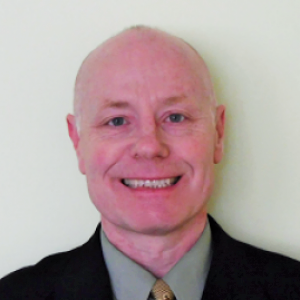
![]()
Training and knowledge matter of course, but beyond that what do you think matters most in terms of succeeding in your field?
There are over 100 different types of dementia, Alzheimer’s is the most common followed by vascular dementia. I in 4 seniors over the age of 85 in Canada have some form of dementia and there are over 10 million new cases diagnosed worldwide every year. This is a growing public health program with over 153 million cases projected by the year 2050. As a university professor, I wrote 7 textbook related to public health and taught courses in public health, epidemiology and research methods. You have to follow your passions in life and when you do you can make a positive impact for society as a whole.
Here’s a little background of how I combined my love of music with doing research related to music therapy and dementia.
When I was about 9 or 10 years old, I would put on Christmas concerts with my sister Kathy and my cousin Irene Bellon in our local community nursing seniors home in Chateauguay, Quebec. My mother and aunt would also bake cookies and cakes for these seniors and veterans and distribute them during our concerts. It was a special time of the year and we really enjoyed giving back to our community and this really warmed our hearts. Later in life, my father suffered from a series of strokes and developed advanced vascular dementia that required him to be placed in a nursing home requiring 24 hour care. Anyways, the irony is that my father was admitted to the same seniors nursing home where I use to do charity Christmas concerts at.
Like many patients with advanced dementia, my father suffered from BPSDs, which are behavioural and psychological symptoms of dementia. These include hallucinations, delusions, aggressive outbursts, anxiety, depression, and so on. When my father was experiences these, I would sing him old folk songs we used to sing around the camp fire in our cottage located in the Laurentians in Quebec on the phone. This was a form of distraction and it quickly changed his affect and mood and often stopped these BPSD’s that he was suffering from. I taught this would be an interesting research project to undertake to see if music could be used to prevent or manage BPSD in patients with dementia, as a nonpharmacological and non-invasive intervention.
When I became Associate Dean of the Faculty of Health Sciences and Ontario Tech University and Director of the BHSc programs, I had the pleasure of working with staff and volunteers at Ontario Shores Centre for Mental Health Sciences located in Whitby, Ontario and graduate students and faculty to create a “Clinical Demonstration Unit” (CDU) for dementia care and research. We did various nonpharmacological interventions to examine their effectiveness on preventing or decreasing BPSDs in geriatric patients with advanced forms of dementia including light therapy, reminiscent therapy, assistive robots with machine learning and of course personalized music interventions.
This was very rewarding and it provided an opportunity to connect my love of music with clinical research in a positive manner to benefit patients with dementia. Although there is no cure for dementia, we can certainly help to improve their quality of life outcomes. These findings were published in a scientific peer reviewed article (see link- https://biomedgrid.com/fulltext/volume9/a-personalized-music-intervention-pmi-to-decrease-bpsds-in-patients-with-dementia.001412.php).
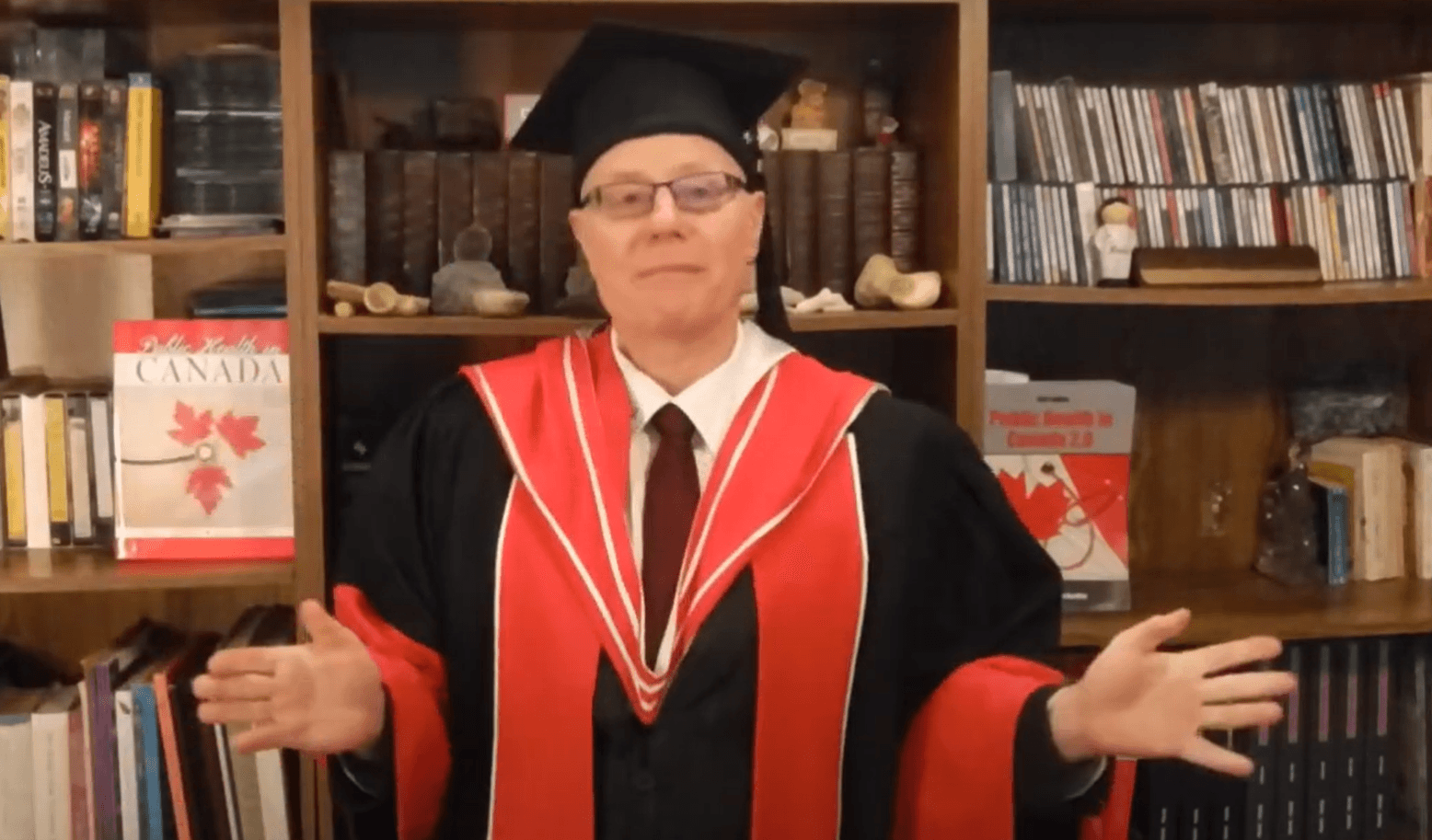
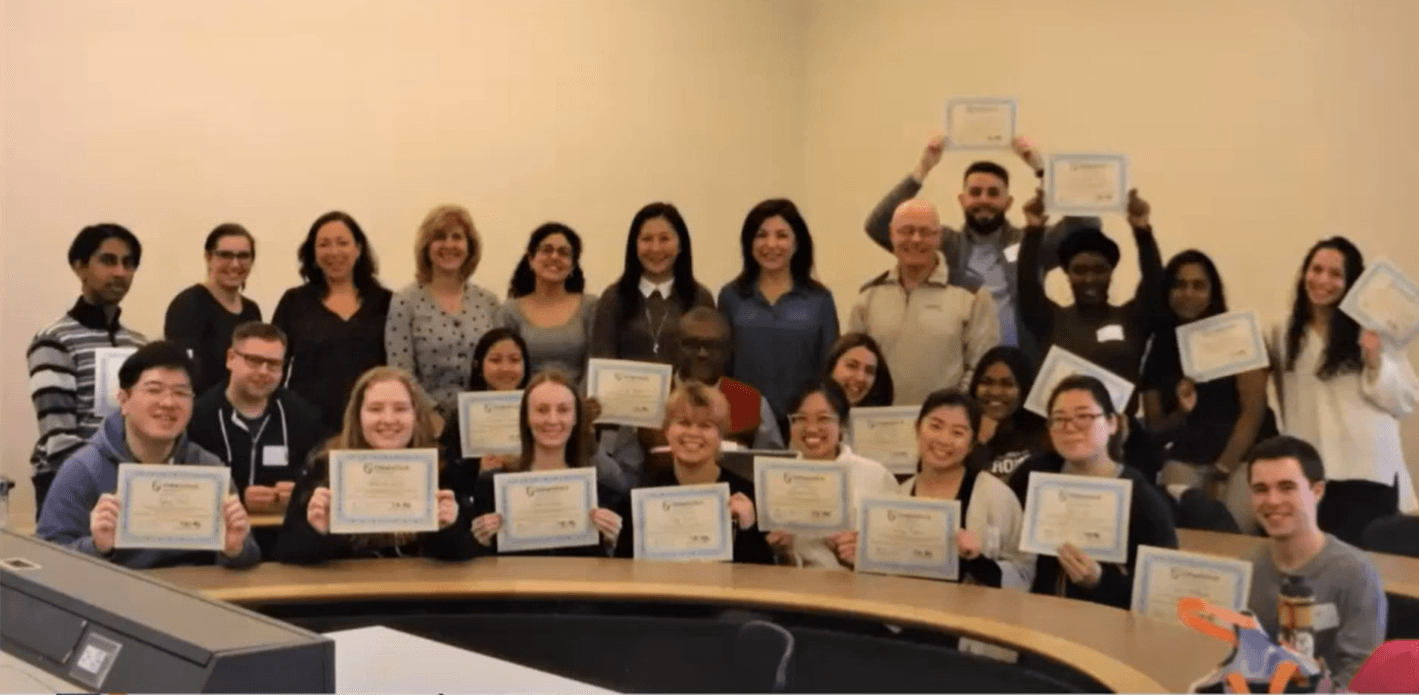
How about pivoting – can you share the story of a time you’ve had to pivot?
During the COVID 19 pandemic, it was a very challenging time being Associate Dean and Director of various undergraduate programs in the Faculty of Health Sciences at Ontario Tech University. In person lectures were not permitted. For Medical Laboratory Students and Nursing Students that required hands-on training in laboratory and clinical settings were also a challenge to meet. In person lectures had to changed to completely on-line delivery format, which was very time consuming and required additional training and support for faculty to achieve this in a timely manner. Laboratory training had to have limited numbers for social distancing and then strict cleaning procedures had to be put into place to prevent any possible cross-contamination. Clinical practice time had to replaced by laboratory simulations. In addition, graduate student research in hospital settings were not permitted, so research thesis topics had to often changed (e.g., on-line surveys) to enable data collection. Thesis defenses, meetings with students and faculty had to be changed to an online format. We all worked together and managed to get through this health care crisis.
Contact Info:
- Website: https://sites.google.com/view/wally-bartfay-music/wally-bartfay-music-productions
- Instagram: https://www.instagram.com/wallybartfay/
- Facebook: https://www.facebook.com/wally.bartfay.98/
- Linkedin: https://www.linkedin.com/in/wally-bartfay-a55a8419a/
- Twitter: https://twitter.com/search?q=wally%20bartfay&src=typed_query [email protected]
- Youtube: https://www.youtube.com/channel/UCkmNjpvuQ-UUcINTFXSS9UA
- Soundcloud: https://soundcloud.com/wally-bartfay
- Other: https://www.youtube.com/channel/UC1JpTVSozqQgpbMExe1txqQ
